Best Shots review - Dog Man: Mothering Heights is another light-hearted tale of found family and friendship
A fun return to George and Harold's comic series about the half-dog, half-man, all hero crimefighter and his loveable friends
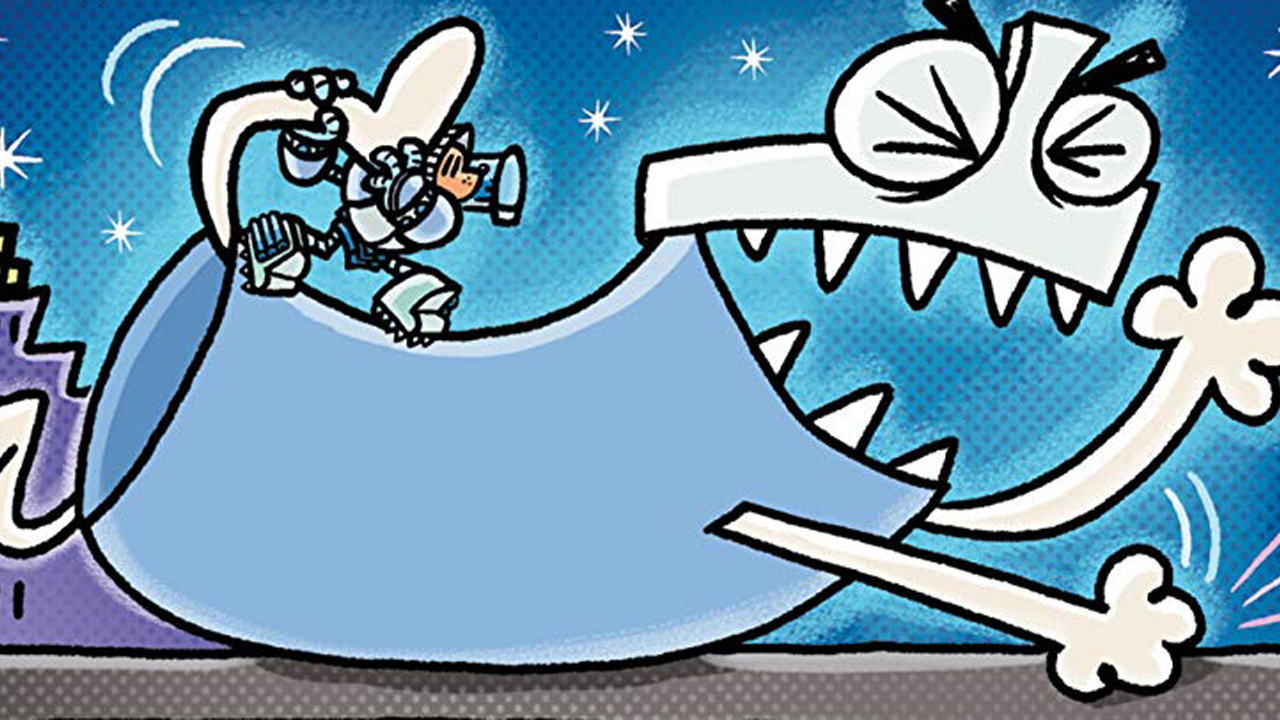
Dog Man: Mothering Heights opens with a dream sequence that ends on a parody of "The Greatest Love of All" about dogs, but if you need to know more than that, it's a fun return to George and Harold's comic series about the half-dog, half-man, all hero crimefighter and his loveable friends. Dav Pilkey delivers another light-hearted tale of found family and friendship, once again managing to weave in complex themes against a colorful kid-friendly backdrop.
Written and Illustrated by Dav Pilkey
Colors by Jose Garibaldi with Aaron Polk and Corey Barba (color flats)
Published by Scholastic Graphix
Review by C.K. Stewart
'Rama Rating: 7 out of 10
In this new entry into Dav Pilkey's expansive Captain Underpants universe, poor Dog Man has found himself trapped in the cone of shame after injuring himself in the line of … duty. Chief is dealing with some potentially unrequited love, while Petey is struggling to keep Li'l Petey and his new telekinetic tadpole friend Molly occupied while he prepares for an interview about his progression from villain to beloved father.
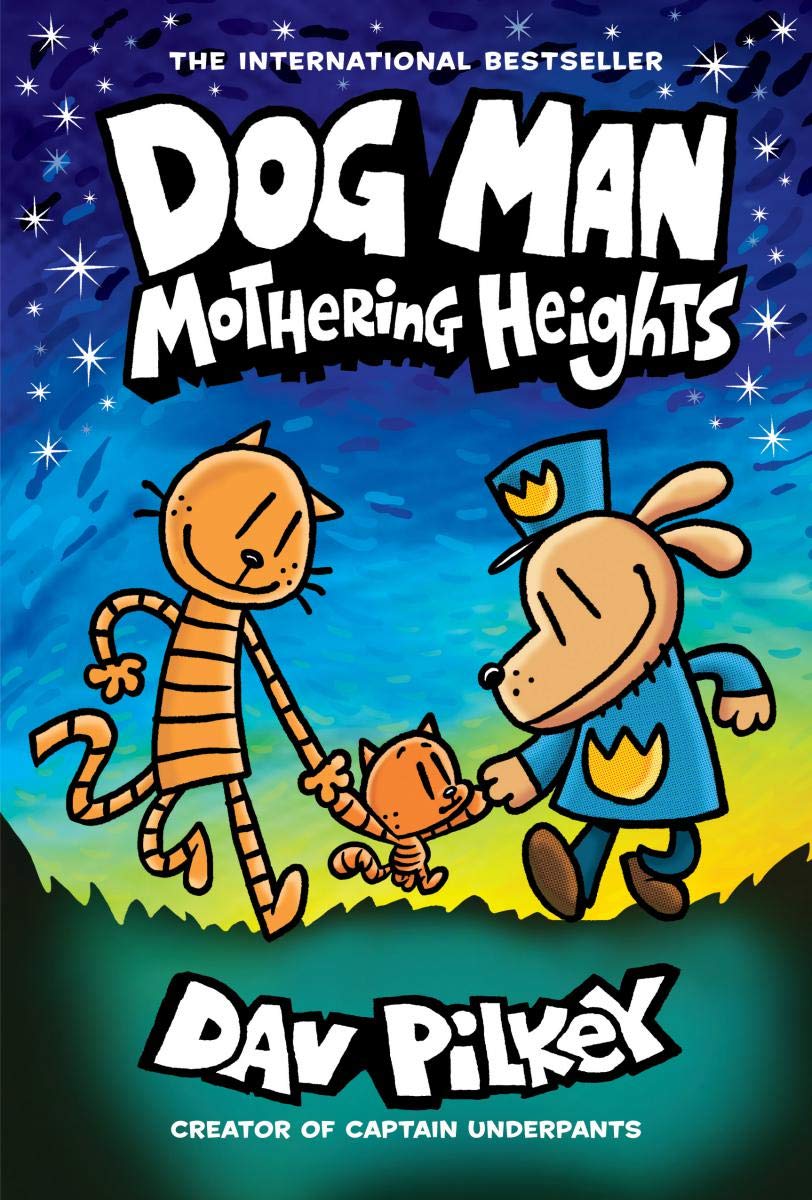
There's a kinetic energy to Mothering Heights that suits the premise. Even for a story ostensibly written by two middle schoolers, though, it lacks the consistency of its predecessors. Pilkey introduces quite a few different storylines, a couple of which seem to disappear before the book ends - Chief goes from dreaming about being Dog Man's best friend to ignoring his coworkers bullying Dog Man so he can write love letters, which feels like an odd thread to drop given the value the series places on friendship and thoughtfulness.
Petey continues to be a delight, though. Despite dealing with some, ah, bathroom-inspired barding from Li'l Petey and Molly, Petey never completely ruins his patience and his story about his past is the highlight of the book. Through Petey, Pilkey addresses issues with the criminal justice system, namely spotlighting the reality that even after someone has served their time, people's assumptions about them may prevent them from being able to make a life for themselves no matter how hard they work. As Petey says, "No matter how hard I tried, nobody would let me forget who I used to be." It's a great lesson for kids to start internalizing at a young age - that if someone does something wrong, and we offer them a path at redemption, it's their responsibility to not repeat their mistakes but ours to offer real forgiveness in return.
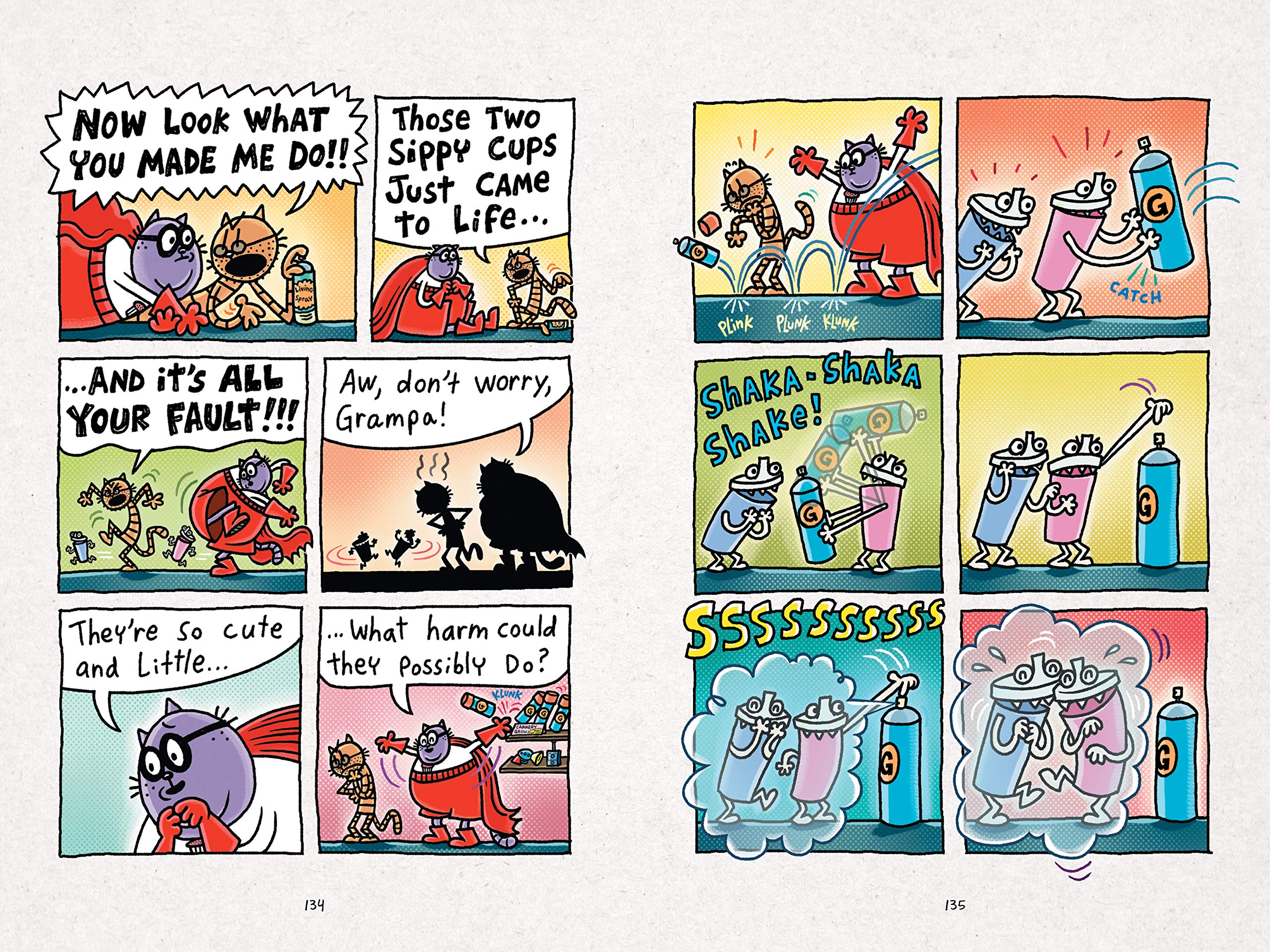
Dog Man: Mothering Heights preview
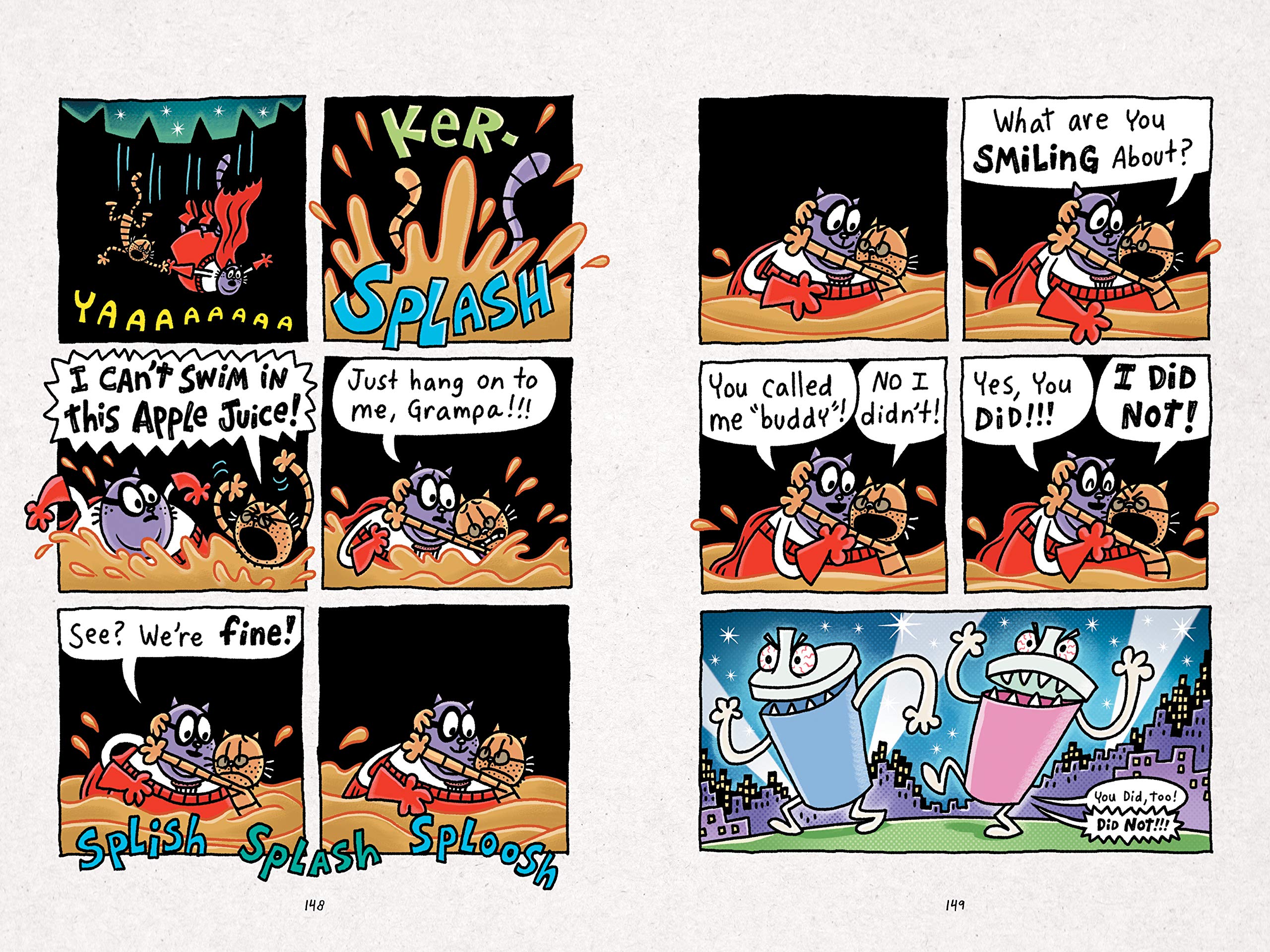
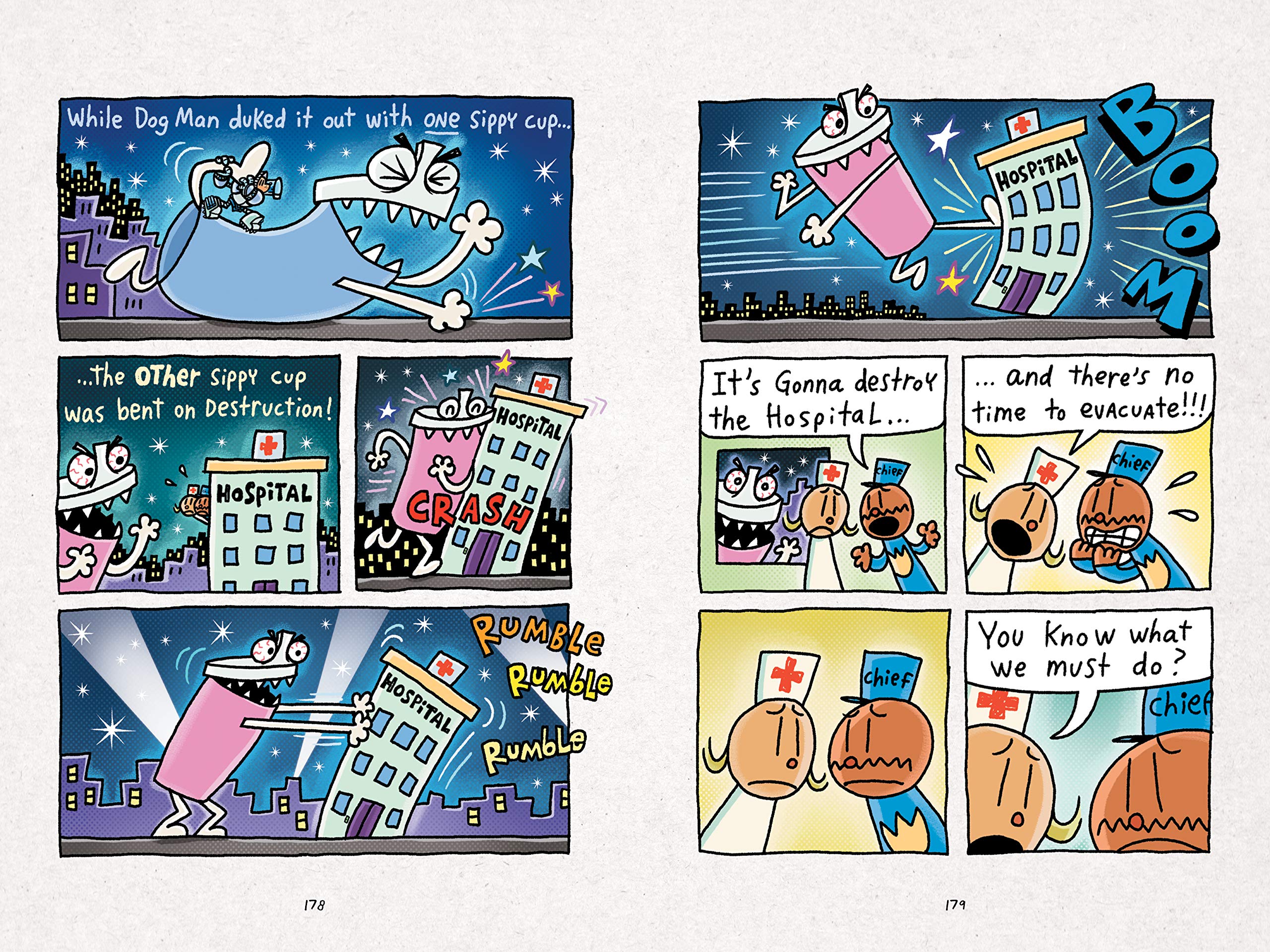
On a lighter note, Pilkey's art and Jose Garibaldi's colors continue to delight. The occasionally frenetic pace of the story serves as a great springboard for some great kaiju-esque action sequences and Pilkey delivers another extremely fun musical moment with Mecha Molly that did make me start trying to sing the Speed Racer theme song. The interactive elements are still fun and easy to follow, and it's easy to see why Pilkey's works remain so popular with young readers. It's undoubtedly difficult to keep a universe so sprawling feeling fresh and new, but Pilkey has managed to find a formula that keeps George and Harold's world engaging and relatable no matter what hijinks Dog Man and friends are getting up to.
Like Dog Man? Make sure you've read Dog Man: Grime and Punishment (and our review of it)!
Get the best comic news, insights, opinions, analysis and more!


